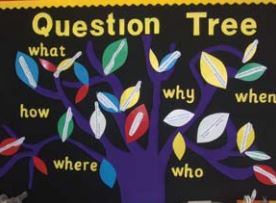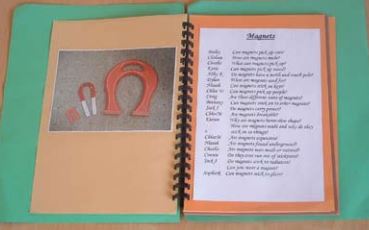
The idea of having a question tree in our classroom developed partly after a visit to our school by Ian Gilbert of Independent Thinking Ltd. Ian worked initially with a group of children from year 2, and the school staff also had a ‘taster’ session with him. We then invited him to come back and work with the whole school, holding discussions in small groups, with the teachers having an opportunity to observe him.
In one of the activities he gave the children an answer statement and they, in turn, had to suggest a relevant question The children found this hard and only a few of them got the precise question. We had noticed that, during the above sessions, the children who usually said very little were much more willing to contribute as there was no right or wrong answer and everybody’s contribution was valued – we wanted to build on this.
Powerful learning
We wanted the children to take ownership for their learning, using thinking skills and working in a non- threatening environment. During previous staff discussions we had realised that learning through asking questions was powerful and needed to be developed.
Hot-seating a child as a Viking or a Roman at the end of the history topic, while the rest of the class asked questions, had always proved successful and very enjoyable. However, the drawbacks were that it was only really useful as a recall exercise and a very shy child would feel put under the spotlight and say very little.
In our class once or twice a week we have a ‘show and tell’ session when children have the opportunity to share news and show items that they have brought from home. It was here that we initially encouraged the children to ask questions of each other. They started with simple questions such as: Did you enjoy sleeping at your nan’s? Who bought the toy for you? Does your brother fight with you? As teachers we posed questions such as: Why do you think your mum might not want you to have a puppy? How did you feel when moved up a group in your tennis club? What could you have done to stop your sister irritating you?
